#Kaneto Shindô
Text

Onibaba (1964)
345 notes
·
View notes
Photo
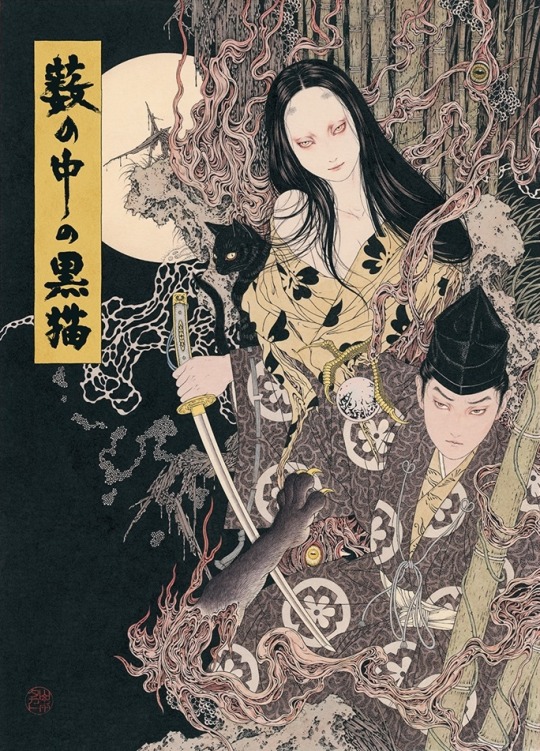
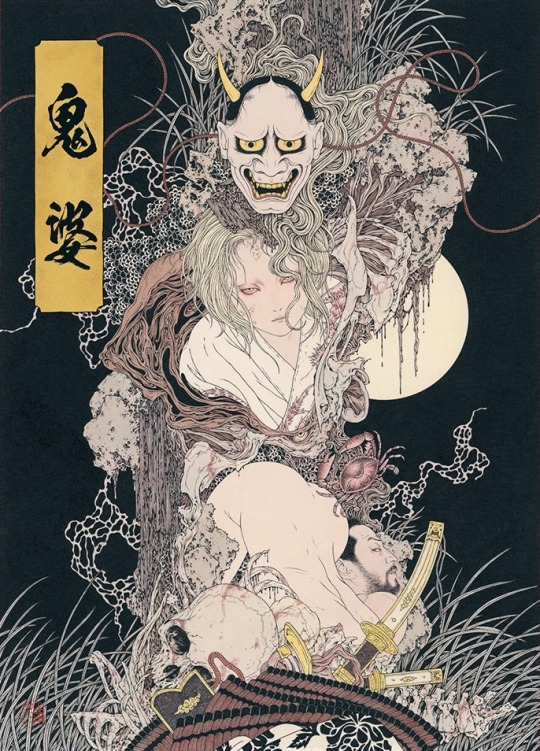
Takato Yamamoto
Kuroneko / Onibaba. 2021
#takato yamamoto#art on paper#dark art#movie posters#art print#2019 original art#japanese horror movies#ukiyo-e style#kaneto shindô#dark city gallery
366 notes
·
View notes
Text
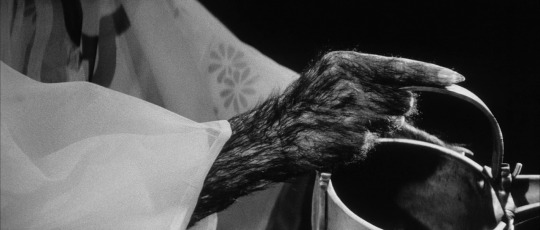
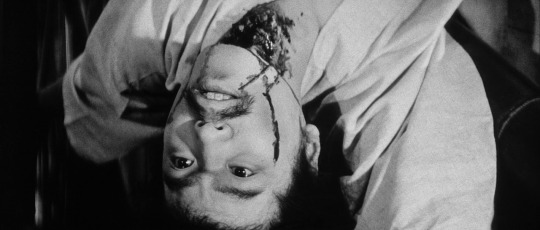


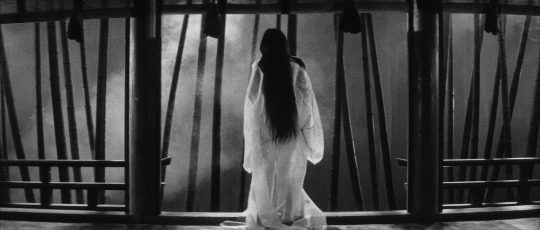
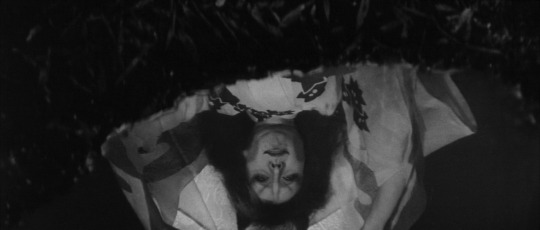
Kuroneko (1968), dir. Kaneto Shindô
#Kaneto Shindô#kuroneko#the black cat#A Black Cat in a Bamboo Grove#Yabu no Naka no Kuroneko#film#cinema
17 notes
·
View notes
Text



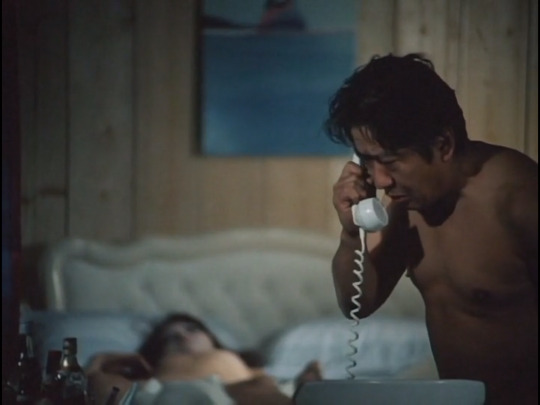

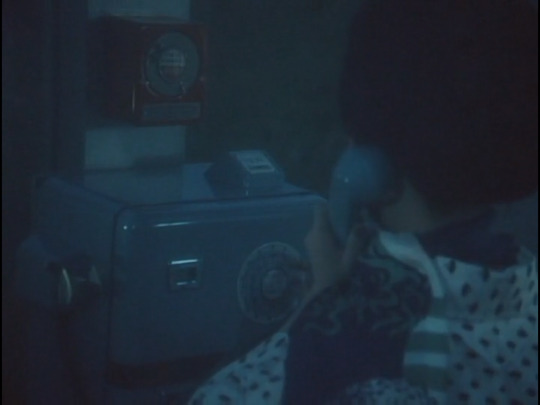
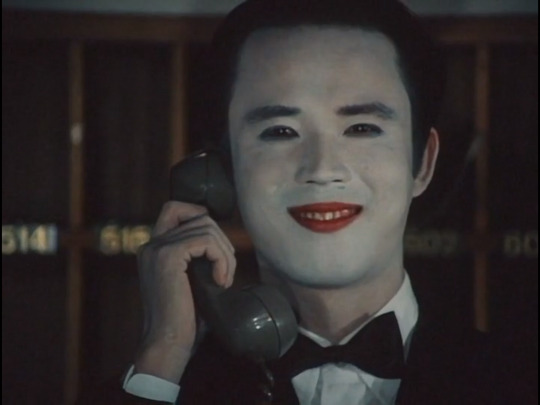
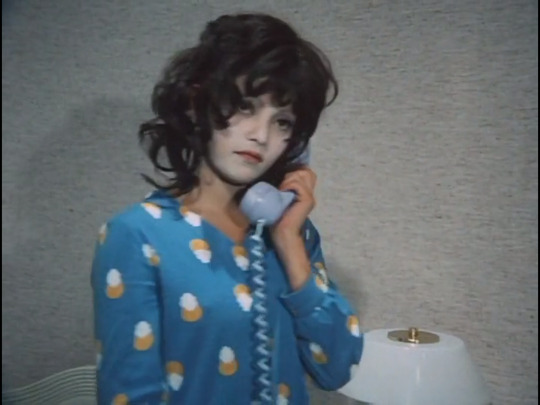
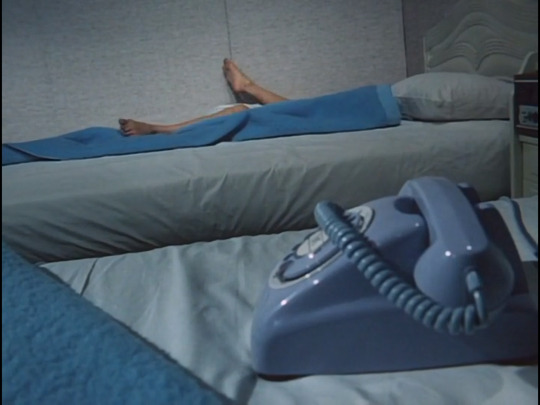
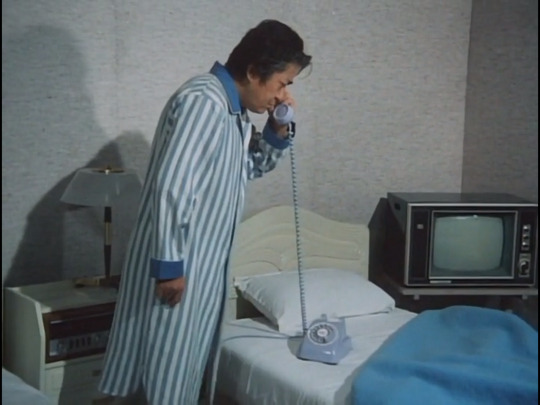
Ring
Ring
Answer the phone
You’re not alone
The iron crown
Kanawa 1972
Kaneto Shindô
3 notes
·
View notes
Text
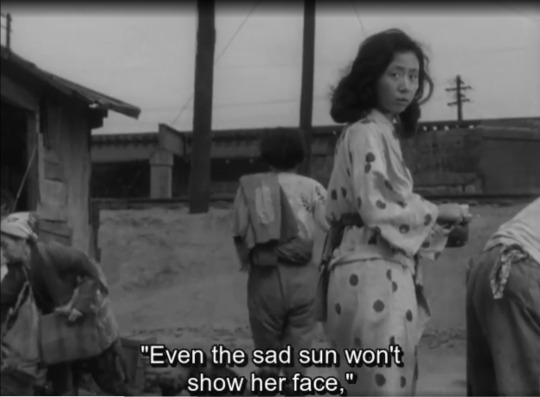
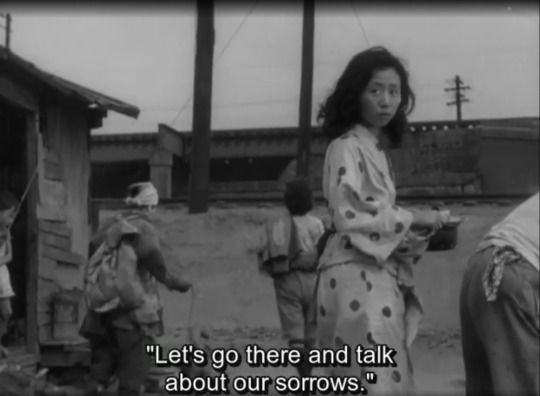
Kaneto Shindô, Dobu (1954)
2 notes
·
View notes
Photo
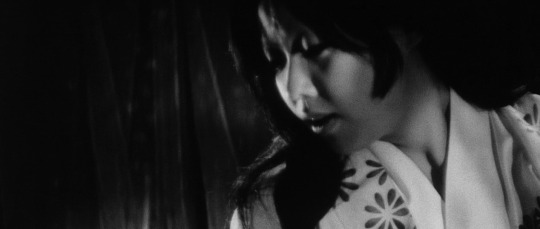

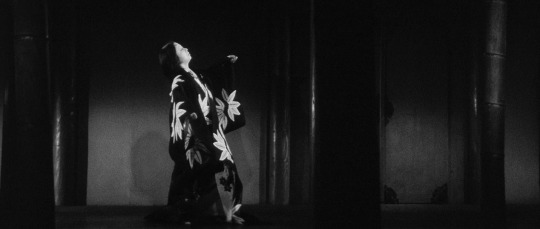
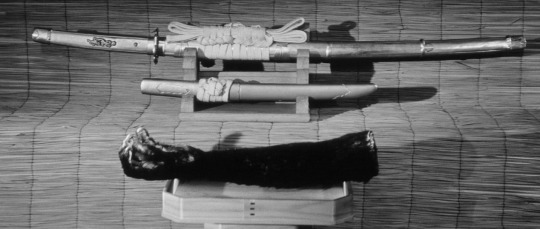

Kuroneko , Kaneto Shindô , 1968.
86 notes
·
View notes
Text



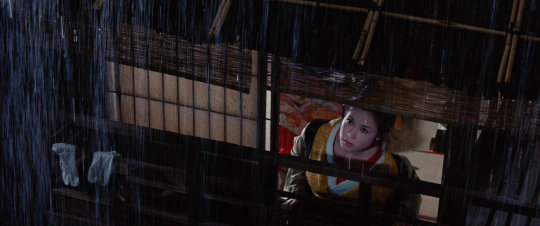


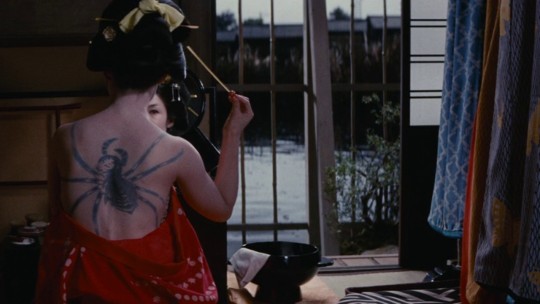


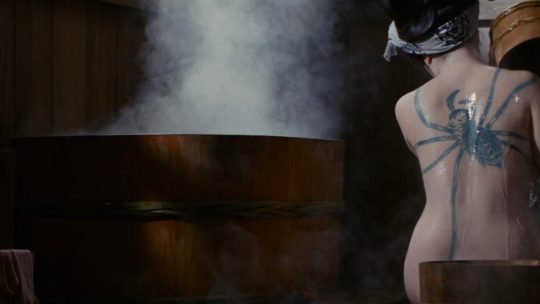
Irezumi (1966)
"See how fascinating this painting is? A beauty trampling the corpses of countless men at her feet, feasting on their flesh and blood to grow and prosper. Tell me... don't you think she resembles you?"
#irezumi#japanese cinema#1966#yasuzô masumura#jun'ichirô tanizaki#kaneto shindô#ayako wakao#akio hasegawa#gaku yamamoto#kei satô#fujio suga#reiko fujiwara#asao uchida#kikue môri#hikaru hayashi#absolutely beautiful film. full of deep‚ rich colours and vibrant detail‚ a masterful composition on a morbid subject#I've loved the other Masumura films I've seen‚ and appreciate his aesthetic focus and eye for detail but this is the first of his colour#works I've seen and it's a whole new level. near perfect in pure visual terms; plotting and script‚ while suitably dramatic#and tragic‚ aren't quite as perfect. centres on a terrific performance from Wakao as a woman transformed from an impulsive and#irresponsible but romantic girl into a cold‚ near monstrous vision of vengeful hatred. arguably Masumura is asking the viewer to look at#Wakao's distorted personality by the end of the film as somewhat grotesque or at least as tragic but i gotta say that in 2023 it's hard not#to feel a frisson of 'good for her' as she engineers the bloody deaths of every man who ever wronged her#the character could perhaps have used a little more nuance and I'd also have liked to have seen more made of the parallels in trading flesh#(both figuratively as sex work and literally as canvas for tattooists) but these are relatively minor gripes. a kind of updated fairy tale#with a moralist slant‚ but a deeply beautiful one. rain swept and blood drenched‚ deep shadows and pale skin‚ flashing blades and#rich fabric folds. sumptuous.
10 notes
·
View notes
Photo

Onibaba (1964)
“I'm not a demon! I'm a human being!”
Director: Kaneto Shindo
Cinematographer: Kiyomi Kuroda
17 notes
·
View notes
Text






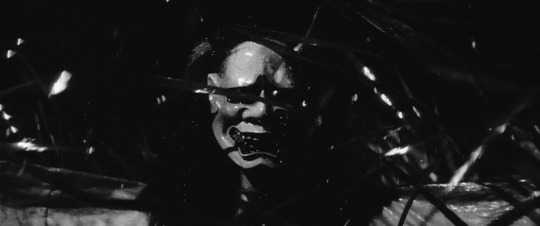
Onibaba (1964) Direceted by Kaneto Shindô
#kaneto shindo#onibaba#film#cinema#movie#movie stills#film frames#cinematography#movies#films#horror film#japanese film#japanese horror
41 notes
·
View notes
Text

“I fly aimless from dream to dream Belonging to a thousand years of poetry.”
~•Mahmoud Darwish•~
#Mahmoud Darwish, from ‘Mural’, #poetry #beautiful #Kaneto Shindô , Black Cat
34 notes
·
View notes
Text
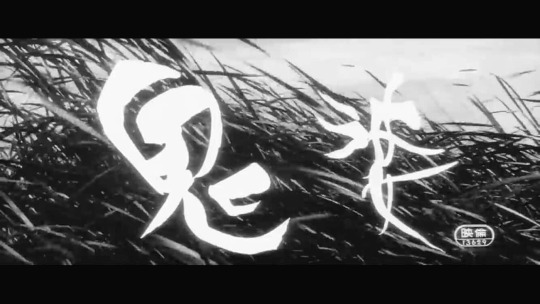
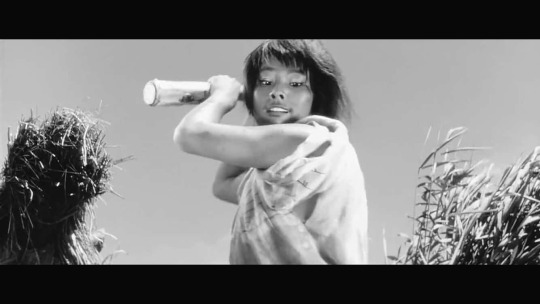
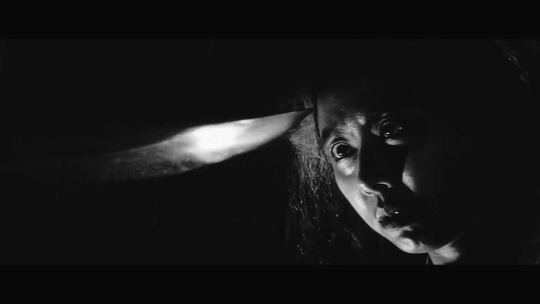
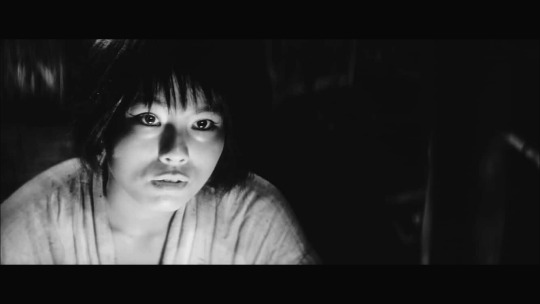
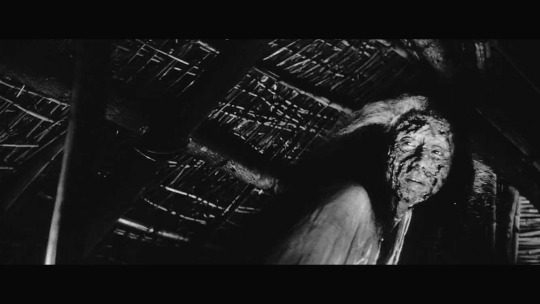
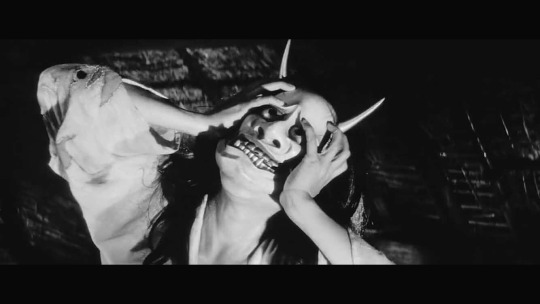
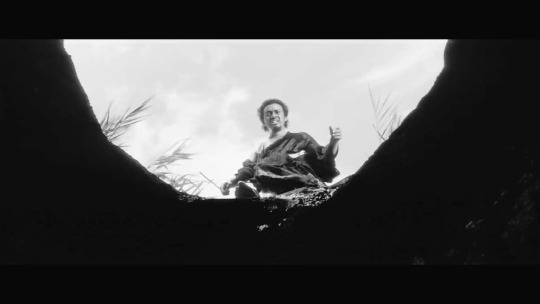
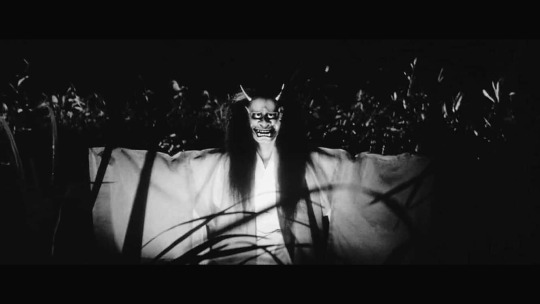
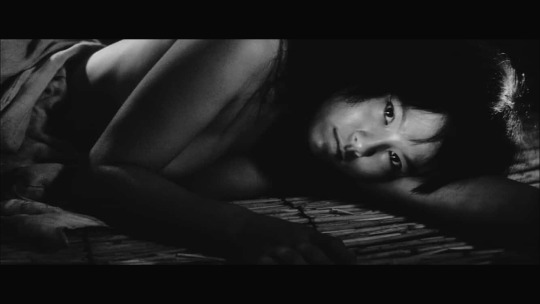
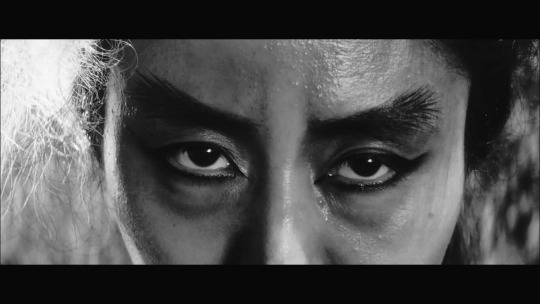
Onibaba (1964)
Dir. Kaneto Shindô
DOP: Kiyomi Kuroda
9 notes
·
View notes
Text


Onibaba (1964)
288 notes
·
View notes
Photo

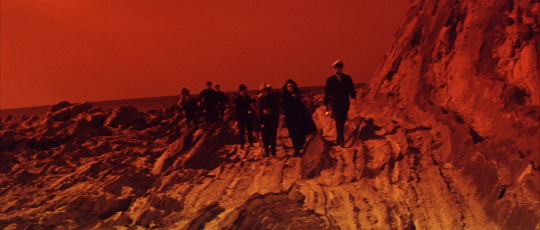





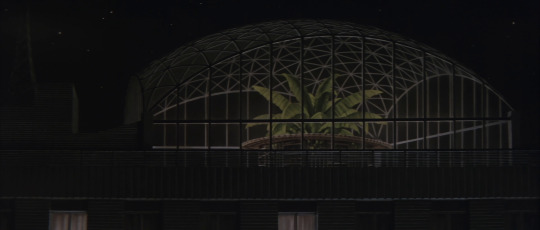


“The night belongs to Black Lizard.”
Kurotokage (Black Lizard), 1962.
Dir. Umetsugu Inoue | Writ. Kaneto Shindô | DOP Yoshihisa Nakagawa
17 notes
·
View notes
Text
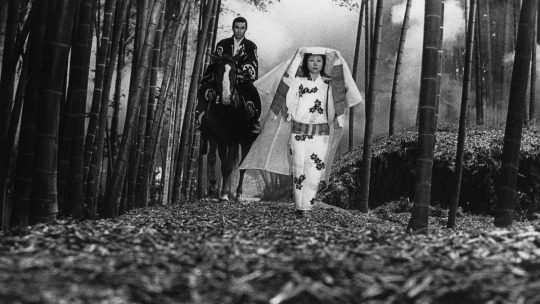
Esta semana, especial folk horror.
Kuroneko (Kaneto Shindô, 1968)
0 notes
Text


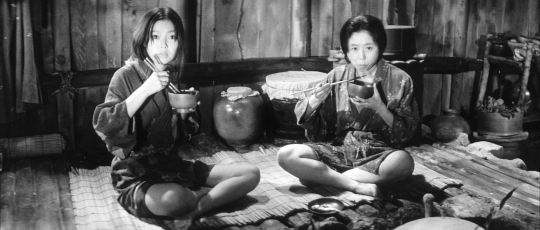

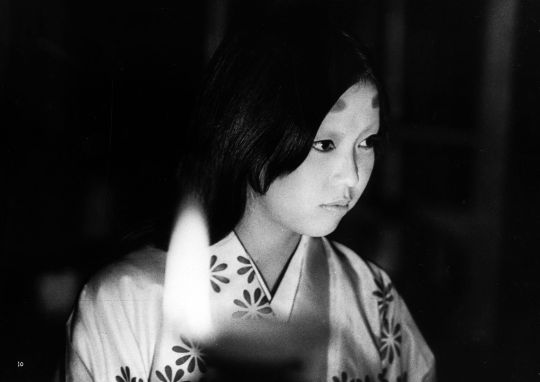
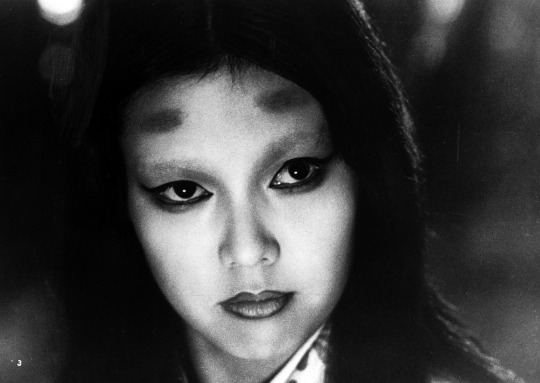
Kuroneko (藪の中の黒猫) (Yabu no naka no kuroneko) (Black Cat) (1968) Kaneto Shindô
March 17th 2024
#kuroneko#藪の中の黒猫#Yabu no naka no kuroneko#black cat#1968#Kaneto Shindō#Kichiemon Nakamura#Kichiemon Nakamura II#Kiwako Taichi#Nobuko Otowa#Kei Satô#A Black Cat in a Bamboo Grove#the black cat
1 note
·
View note
Text
Review "The Naked Island" ("Hadaka no shima")
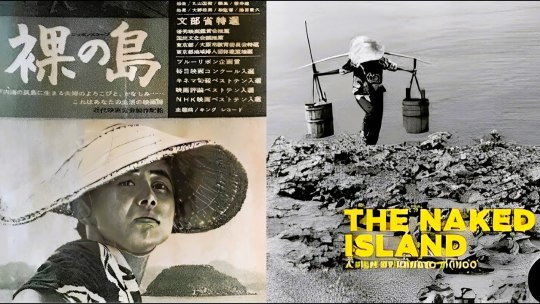
I watched "The Naked Island" directed by Kaneto Shindô. The main actors are Nobuko Otowa as Toyo, the mother,
Taiji Tonoyama as Senta, the father, Shinji Tanaka as Tarô - the elder son, and Masanori Horimoto as Jirô - the younger son. These four make up a family that grows sweet potatoes on an island not far from the mainland (well, I assume it is one of the major islands of the Japanese chain of islands). This island has no water for drinking. It sits in the inland sea. Every day the parents make at least two trips to the mainland to get buckets of water to bring back to the island. Each of them, together or individually, carries up two large buckets that sit on a piece of wood that rests on their shoulder. They have to carry the water-filled buckets up a narrow path which goes up a very tall hill to where they live and cultivate plants . This does not look like an easy task. . It is almost a Sisyphean task. They do reach the top but they have to do it over and over again every day. There are some side characters. The younger son goes to school on the mainland. There is a teacher and a classroom of kids. Later there appears a priest. One thing of note for this film is that there is no dialogue. None. There is background music which is repeated throughout the movie. It is pleasant at first but you begin to wonder about it as it gets repeated day after day. There is also some singing by the school children once, I believe. So actually the names of the two boys may be in the script but you never hear their names. One does wonder why they don't have a cistern system to catch rain when it does rain or some mechanical device or conveyance to get the water up the hill. No reason is given. The movie goes through four seasons and you see some of their daily activities, although the main activity relates to the growing, harvesting and use of the sweet potatoes and of some type of grain and other normal daily activities including caring for some animals they have, meals, etc. This film is in black and white. The setting is really quite lovely. The viewer sees the acceptance by the family of their life. I believe this is set just after WWII and I think everyone has difficult times and this certainly illustrates that. I enjoyed the film although it is somewhat depressing seeing them go through these same days and hardships, day after day. Occasionally the boys play and laugh. Occasionally the mother and father have smiles on their faces, watching the boys, at the end of the day, taking a hot bath, etc. They do have some outings to the mainland which obviously are entertaining. This is a marvelous film. There is only one angry scene in the film when the mother spills one of her two buckets of water. The father walks a few steps down (they are in the middle of their cultivated area), looks at her and slaps her. It is more of a slap about her wasting water than in true anger. She doesn't really react. She accepts this. One is lead to believe she understands this and doesn't really have a problem with it. There is also a sad portion of the movie but I won't detail that here.
Although one might think that the two adults are actually farmers, they are both actors and are in many movies. In real life Shindô, the director, later married Nobuko Otowa, the mother in the film. Interestingly enough both Nobuko Otowa, who died first in real life, and later Shindô both had their ashes scattered on this island. There were many years and many films between this film and their deaths.
This film won numerous awards including the Grand Prix at the Moscow International Film Festival. In the classic films list, They Shoot Pictures Don't They, this film is number 876.
The release I watched is from Criterion and the print is excellent. There is a lot of supplemental material which I will watch today and over the next few days.
1 note
·
View note